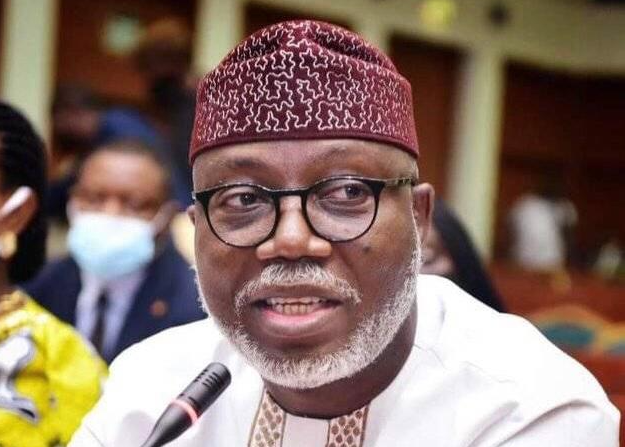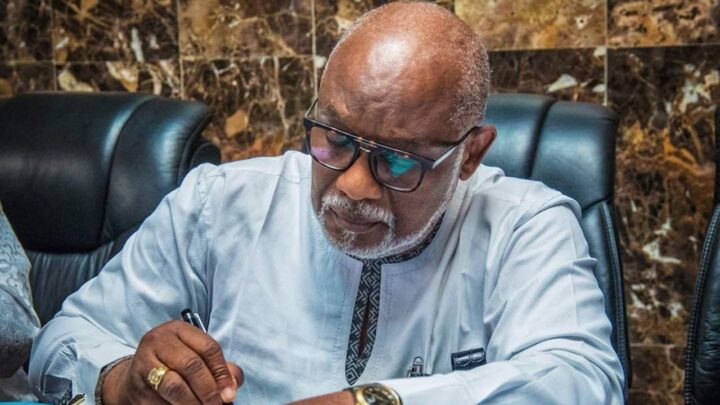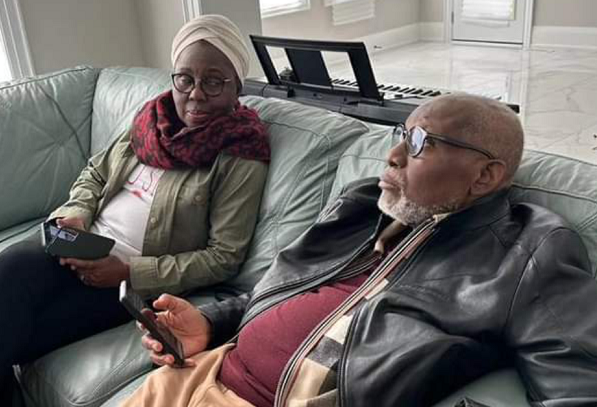Lucky Aiyedatiwa
Femi Emodamori, counsel of the Ondo assembly, says the lawmakers are not suspending the impeachment proceedings against Lucky Aiyedatiwa, deputy governor of the state.
The state assembly began the impeachment process after Rotimi Akeredolu, governor of Ondo, returned from a three-month medical leave in Germany.
Following his return, the governor sacked the media aides attached to Aiyeditawa, who acted in his stead while he was away.
The deputy governor was then charged with alleged abuse of office and the state assembly moved to impeach him.
Advertisement
However, Emeka Nwite, a federal high court judge, issued an order stopping the impeachment of Aiyedatiwa by the Ondo assembly.
Consequently, Olusegun Odusola, chief judge of the state high court, declined the assembly’s request to set up a seven-man panel to investigate allegations of gross misconduct against the deputy governor.
Speaking on the development, Olatunji Oshati, spokesperson of the assembly, said the lawmakers would comply with an order from a federal high court and halt further proceedings.
Advertisement
“We have considered the letter, which is everywhere in the public domain, and we are halting the impeachment process until the order of the federal high court is vacated,” he said on Friday.
However, in a statement on Saturday, Emodamori countered Oshati’s announcement, saying the assembly will carry on the impeachment process to a “logical conclusion”.
The lawyer said “there are too many judgments of the highest courts in Nigeria affirming that no court has the jurisdiction to dabble into an impeachment process, as long as the House of Assembly complies with all the constitutional process”.
He added that the lawmakers are taking “necessary legal steps to vacate” the ex-parte order of the federal high court.
Advertisement
“Impeachment is a constitutional process clearly outlined in section 188 (1)-(11) of the Constitution of the Federal Republic of Nigeria, 1999 (as amended), and our Client has meticulously complied with all the stages leading up to the obligation placed on the State Chief Judge to set up a 7-man Panel to investigate the allegations, as stipulated in Section 188(5) of the Constitution,” he said.
“The notice of allegations of gross misconduct was signed by 11 members of the House and presented to its Speaker on 20th September 2023, in strict compliance with Section 188(2) of the Constitution, which requires at least one-third of the 26 House members to sign and present the notice to the Speaker. That is the first stage in the impeachment process.
“The proceedings or determination of the House or Panel or any matter relating to such proceedings or determination shall not be questioned or entertained in any court, and there are too many judgments of the highest courts in Nigeria affirming that no court has the jurisdiction to dabble into an impeachment process, as long as the House of Assembly complies with all the constitutional process.
“His lordship, however, stated that as a Chief Judge, he would prefer that the ex parte order, which his lordship believes ‘tied his hand’, should first be vacated or set aside. The Chief Judge obviously prefers to err on the side of caution.”
Advertisement
Add a comment






